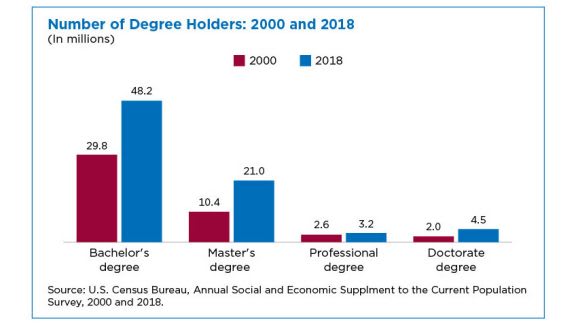ParabolicTet
Mechanical
I've always wondered why US citizens don't pursue advanced engineering degrees? They are a minority in most universities. It makes no sense because Silicon Valley is full of very high paying software engineering jobs. Other disciplines may not pay those high rates but still offer very well paid and rewarding work..
I remember working at megacorp and seeing a bunch of maintenance workers coming to fix some pipe or something. These people had been in the country for generations and had excellent command of the language, customs and culture. Yet they were probably earning half of what the engineers in that building earned. Plus their work had an element of danger to it. Most of the engineers in the buidling were foreign born who had poor to modest command of the language and minimal understanding of the cultures/customs. Some of them were technical managers and such.. The dichotomy strike me as very odd.
I guess same thing applies to my US citizens don't go to Medical school also...
I remember working at megacorp and seeing a bunch of maintenance workers coming to fix some pipe or something. These people had been in the country for generations and had excellent command of the language, customs and culture. Yet they were probably earning half of what the engineers in that building earned. Plus their work had an element of danger to it. Most of the engineers in the buidling were foreign born who had poor to modest command of the language and minimal understanding of the cultures/customs. Some of them were technical managers and such.. The dichotomy strike me as very odd.
I guess same thing applies to my US citizens don't go to Medical school also...

